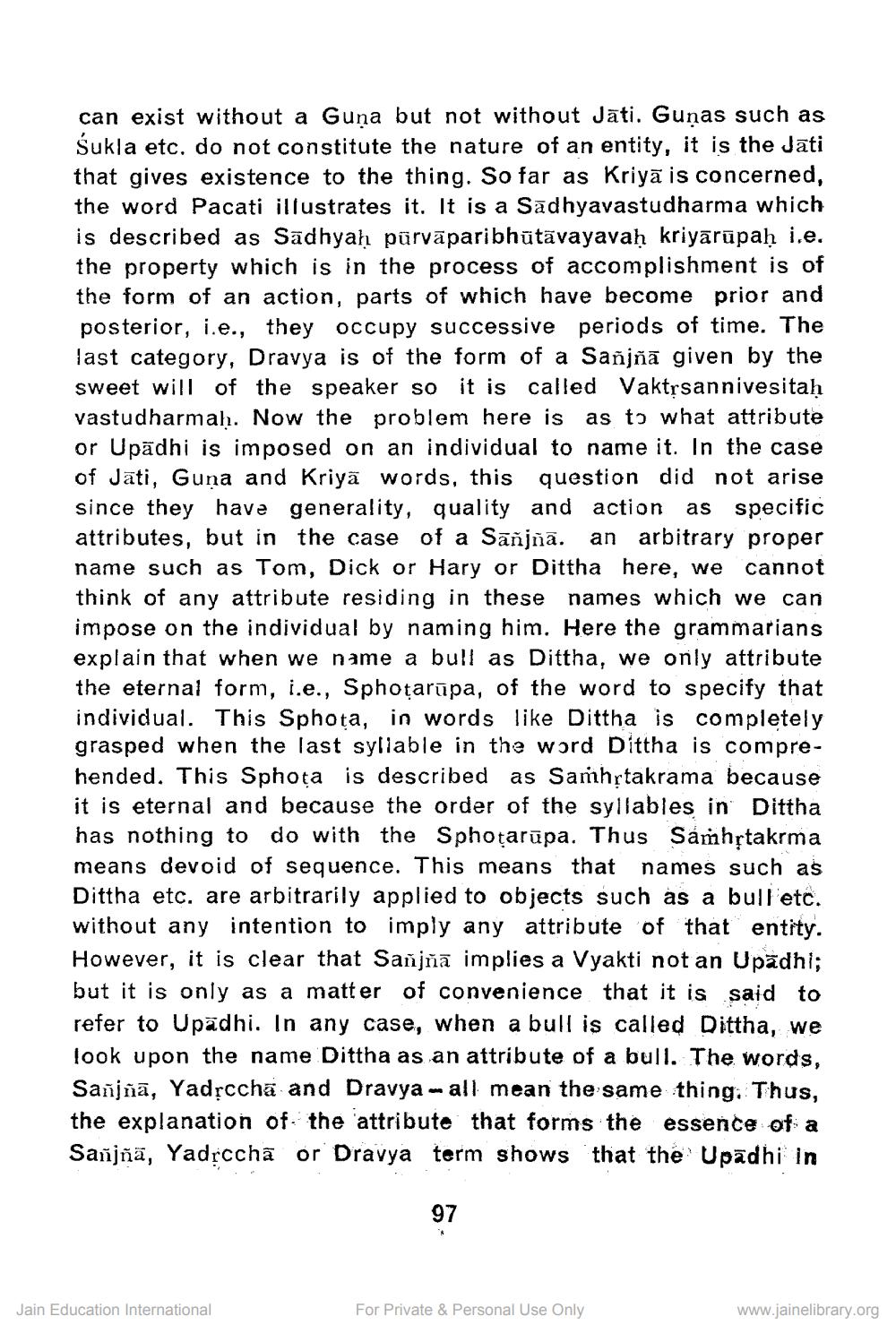________________
can exist without a Guna but not without Jati. Gunas such as Śukla etc. do not constitute the nature of an entity, it is the Jāti that gives existence to the thing. So far as Kriya is concerned, the word Pacati illustrates it. It is a Sadhyavastu dharma which is described as Sadhyaḥ purvaparibhūtāvayavaḥ kriyārūpaḥ i.e. the property which is in the process of accomplishment is of the form of an action, parts of which have become prior and posterior, i.e., they occupy successive periods of time. The last category, Dravya is of the form of a Sañjña given by the sweet will of the speaker so it is called Vaktṛsannivesitaḥ vastudharmaḥ. Now the problem here is as to what attribute or Upadhi is imposed on an individual to name it. In the case of Jati, Guna and Kriya words, this question did not arise since they have generality, quality and action as specific attributes, but in the case of a Sañjñā. an arbitrary proper name such as Tom, Dick or Hary or Dittha here, we cannot think of any attribute residing in these names which we can impose on the individual by naming him. Here the grammarians explain that when we name a bull as Dittha, we only attribute the eternal form, i.e., Sphotarupa, of the word to specify that individual. This Sphota, in words like Dittha is completely grasped when the last syllable in the word Dittha is comprehended. This Sphota is described as Samhṛtakrama because it is eternal and because the order of the syllables in Dittha has nothing to do with the Sphotarupa. Thus Samhṛtakrma means devoid of sequence. This means that names such as Dittha etc. are arbitrarily applied to objects such as a bull etc. without any intention to imply any attribute of that entity. However, it is clear that Sañjñā implies a Vyakti not an Upadhi; but it is only as a matter of convenience that it is said to refer to Upadhi. In any case, when a bull is called Dittha, we look upon the name Dittha as an attribute of a bull. The words, Sanjñā, Yadṛccha and Dravya- all mean the same thing. Thus, the explanation of the attribute that forms the essence of a Sanjña, Yadṛccha or Dravya term shows that the Upadhi in
Jain Education International
97
For Private & Personal Use Only
www.jainelibrary.org




